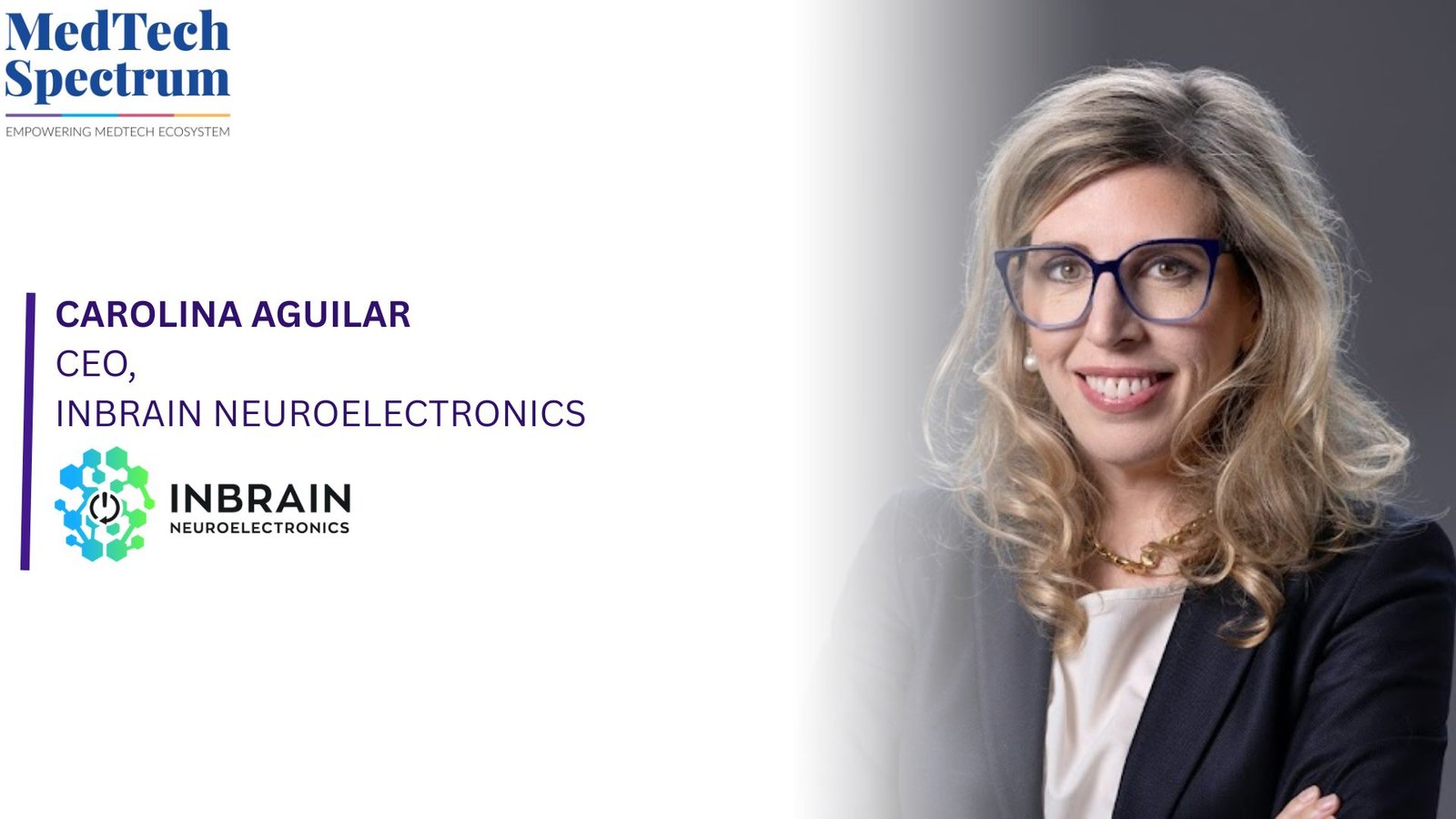
As part of our coverage at MedTech Spectrum, Dr. Carolina Aguilar, Co-Founder and CEO of INBRAIN Neuroelectronics, shares how the company’s recognition as a 2025 World Economic Forum Technology Pioneer reflects its groundbreaking work in precision neuromodulation. INBRAIN is leveraging the unique properties of graphene to create ultra-thin, intelligent brain-computer interfaces (BCIs) that decode and modulate brain signals in real time. Targeting neurological conditions such as epilepsy, Parkinson’s disease, and stroke, the technology is designed to deliver personalized and adaptive neurotherapies with minimal invasiveness. This global acknowledgment underscores INBRAIN’s commitment to redefining the future of neurotechnology through data-driven, patient-centric solutions.
What does being named a 2025 World Economic Forum Technology Pioneer mean for INBRAIN’s mission and global positioning in the neurotechnology space?
Being recognized as a 2025 Technology Pioneer by the World Economic Forum is a
powerful validation of our work to revolutionize brain-computer interfaces using
graphene. This recognition amplifies our mission to bring precision neuroelectronic
therapies to patients around the world—therapies that are intelligent, minimally invasive, and outcomes-driven. It also positions INBRAIN as a global thought leader in the intersection of advanced materials, AI, and neuromodulation, and opens the door to collaborations with policymakers, technologists, and healthcare leaders on a global stage.
How does INBRAIN’s graphene-based BCI technology differ from traditional neuromodulation systems in terms of precision, safety, and long-term therapeutic potential?
Graphene offers a fundamentally different approach. It’s ultra-thin, biocompatible, and capable of recording and stimulating brain signals with micrometric precision—something traditional metal-based systems can’t match. This allows us to
both decode and modulate brain activity in real time with minimal tissue disruption. The result is a safer interface with higher resolution, greater longevity, and the potential to deliver truly personalized therapies that adapt to each patient’s evolving neural state.
Can you share updates on clinical progress or use cases where your platform has shown the most promise, particularly in treating conditions like Parkinson’s or epilepsy?
We recently achieved a major milestone in our first-in-human clinical trial, where our graphene cortical interface demonstrated consistent safety and high-resolution
decoding capabilities during brain tumor surgery. This is a crucial step toward developing real time precision neuro and bioelectronic medicine. In parallel, we are advancing indications in Parkinson’s disease and epilepsy, where precise mapping and modulation of brain activity can make a significant impact. Early data provided to the FDA, granted us FDA breakthrough designation providing reasonable proof of superiority versus the neuromodulation standard of care.
How does real-time brain signal decoding contribute to the personalization of neurological therapies, and what role does AI play in your system?
Real-time decoding enables us to understand a patient’s neural activity as it
happens—and to adapt therapy accordingly. Our system is designed to capture these signals with high fidelity and feed them into AI algorithms that detect patterns, predict patient responses, and inform how and when to stimulate. Over time, this creates an autonomous closed-loop system that learns and evolves with the patient, offering a level of personalization and dynamic adjustment that static systems simply can’t deliver.
What are INBRAIN’s next steps following this recognition, and how do you plan to scale or collaborate to further accelerate adoption of your platform globally?
This recognition marks the beginning of a new chapter. We're expanding clinical studies, deepening our AI capabilities, and forming strategic partnerships across healthcare, research, and regulatory domains. Scaling globally means building strong ecosystems—from hospitals to insurers to regulators—that are ready to adopt intelligent neuroelectronic therapies. We’re especially focused on geographies where neurological disorders are underserved, and we’re actively seeking collaborators who share our commitment to ethical, outcomes-based innovation in brain health.
Chaitrali Gajendragadkar
chaitrali.gajendragadkar@mmactiv.com
Senior Officer - Media Integrations
MedTech Spectrum
www.medtechspectrum.com